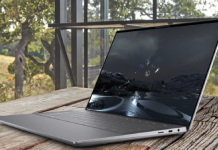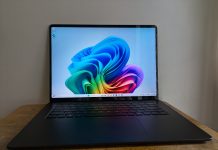![]()
For those who already own or want a Chromebook the Chromebook Pixel line by Google is the ultimate device, if you have a Pixel you’ve got the best expression of a Chrome OS device. We were a little disappointed when there wasn’t a refresh to the Pixel 2 12 months after its March 2015 launch.
However, if you look at the 2 devices that have been released there could be a pattern forming. The original Chromebook Pixel was released in February 2013, the second in March 2015. Could the Pixel be a Biennial device? If a recent job advertisement for a ‘Quality Engineer, Chromebook Pixel’ is any indication then the answer could well be Yes.
You’ll notice the job advert overtly calls out Chromebook, not just a Pixel device. Now, Google could be obscuring the real purpose of the position, but if we take it on face value recruiting now for a product due out on about 9 months seems reasonable.
Here’s the introduction to the advertisement.
Google’s custom-designed equipment makes up one of the largest and most powerful computing infrastructures in the world. The Manufacturing Operations team is responsible for providing the manufacturing capability to deliver this state-of-the-art physical infrastructure. As a Manufacturing Engineer, you evaluate the product designs and create the processes, tools and procedures behind Google’s powerful search technology.
That all sounds exciting. With Android apps starting to roll out to Chromebooks we just may need Google to lead the way once more in showing other OEMS what the next generation of Chromebooks will need to succeed.
If a device is indeed in development what could it contain? Will the already premium specifications of the 2015 Pixel be expanded or simply iterated upon? Will an LTE model make a return? And most importantly will they finally be available outside of the US and the UK?
Assuming a new device is even in the works we don’t expect to hear anything from Google until at least September this year, if not sometime into 2017.
Would you buy a Chromebook Pixel if it was released in Australia? Let us know below.




Yes, I would absolutely buy a Pixel, if I could get one in Australia. As it is, Im stuck by importing mine from the US, and hoping that all goes well with the deal. Why would I get a chromebook ? Same reason Id get a Macbook. Not because its the “perfect machine for everything Id need to do”, but more because its a target device for software development, and I need to QA what Im developing, on the target machines that most users in the future will be using. And besides, all emulators suck ! Most users out there… Read more »
With the introduction of Android apps to Chrome OS it’s tempting. But as someone who does a lot of photo and video editing it’s almost impossible to justify. Until Adobe’s creative suite is available on Chrome OS I’ll have to keep passing unfortunately. I just don’t think I’m in the target market for such a device.
Photo editing is fine – Lightroom for Android is great and works on Chrome OS quite nicely. For basic photo editing I use Pixlr a LOT and it’s fantastic.
Video editing though is the reason I take a Macbook to events instead of the Chromebook.
But it’s not the fully featured version of Lightroom available on PC or Mac. It doesn’t work with my purchased filter packs from VSCO for example (not to my knowledge anyway).
How about switching to the Nik filters (which Google have now made free) so that the transition to Snapseed later on is easier?
(I’ve used neither VSCO nor Nik in my Lightroom workflow, so can’t comment on how they compare but just throwing the option out there.)
Perhaps one day. My main concern with switching to Nik is that now that Google has made it free it’s probably not going to be a priority for them in terms of development.
Not to mention I’ve spent quite a bit of money on VSCO. The prices are lower now but a couple of the packs I bought a while ago were around $115 each.
By the way, I do love the Snapseed mobile app. It’s probably better than Lightroom on mobile. But yeah, on the desktop Lightroom still reigns.
VSCO and lightroom … they are good as go, as far as off the shelf apps are concerned, but a little too restrictive, inflexible and limited for my liking.
Wave a look at whats available in the open source areas, with the ability the roll your own filters from scratch, and put together your own production pipelines. Its pretty cool, and well worth the time investment to get into it.